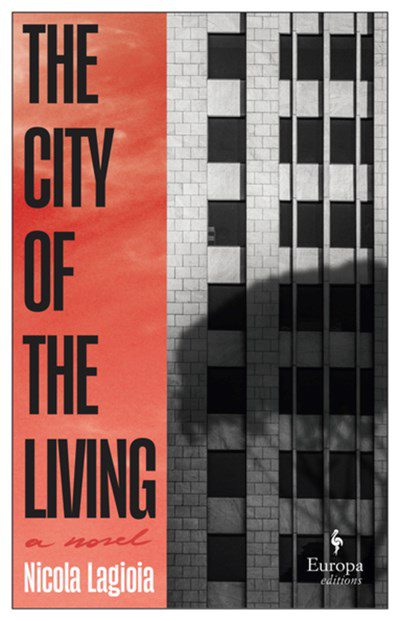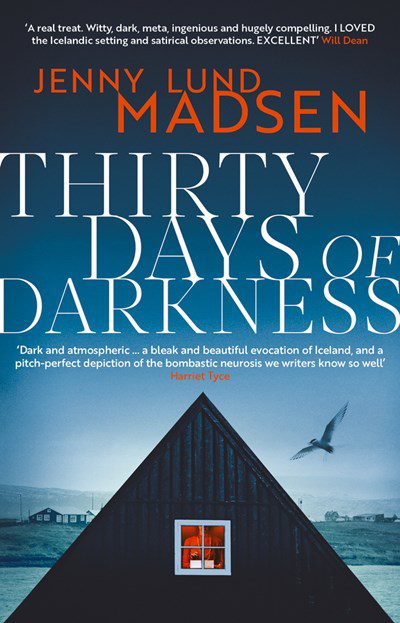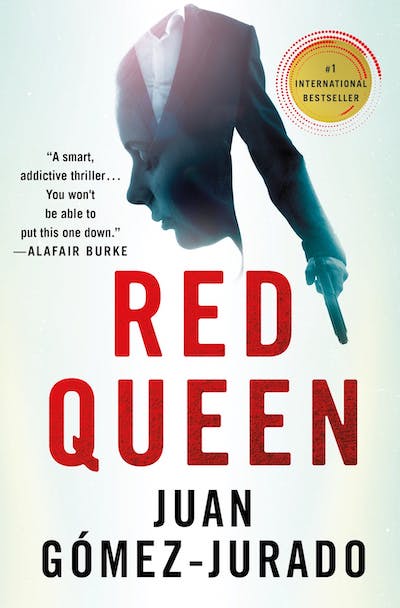The novel opens with the abduction of a young woman, Shindo—a butch, menswear-wearing, expert fighter—who is taken away by the yakuza, a crime syndicate. After turning several henchmen into minced meat (it’s very Kill Bill), and nearly raped and brutalized herself, she’s given permission to live, providing that she agrees to work as the bodyguard and driver of Shoko, the only child of the gang’s leader. Shoko, who’s around Shindo’s age, is a revelation: doll-like, dressed in strange, old clothes (it’s the early 1980s), a student at a women’s junior college that is more like a finishing school, with courses in French pastries. And while Shindo misses her old life delivering for a florist, she and Shokow slowly begin to hit it off as Shindo ferries her back and forth from school. Shoko’s life, it turns out, is no picnic, including her upcoming marriage to a complete and utter sadist. How the two women manage to escape from this uber-violent world, confront the patriarchy, and create an alternate existence is as thrilling as it is fast paced. This novella was nominated for a 2021 Mystery Writers of Japan Award
World Literature
With a doctorate in Egyptology, it would have been easy for Malayna Evans to have fallen down the bottomless hole of historical detail. But instead, this is a beautifully balanced novel, rich in the experiences of life in the backstabbing court of Pharaoh Hatshepsut while also focused on the engaging and ultimately tragic life of her daughter, Neferura, princess and high priestess of Kemet. Neferura lives to support the people, but she is often distracted by court machinations, especially those of her misogynistic half-brother, Thutmose, who wants to end her mother’s rule, become Pharaoh, marry Neferura, and produce an heir. Neferura’s interior thinking is powerfully engaging, and setting the novel largely among women, whose struggles to lead are always under scrutiny, is incredibly refreshing. But Neferura’s own story feels nearly revolutionary: to survive, she befriends the wisewoman, a much-tattooed priestess of sorts, who is in touch with a network of women who devote themselves to supporting Neferura, even to the point of risking their own lives. Add to this several standout characters, such as Neferura’s life-long tutor who helps guide her actions, and you have a cadre ready to protest their princess. Powerful and poignant, this is a treat for fans of historical mysteries.
A deep, dark descent into one of Italy’s most disturbing true crimes, drawing on actual documents, news reports, and interviews to tell the story. Billed by the publisher as a “spellbinding literary thriller”—it’s certainly spellbinding, but no one’s definition of a thriller—this is a slow, methodical, layered journey into the murder of 23-year-old Luca Varani. The method? Torture. The perpetrators? Manuel Foffo, who confesses to his father, while driving to a family funeral, that he killed someone—three, four, five days ago?—he’s too drugged out to know. And Marco Prato, also from a “good family,” a nightclub promoter, gay and considering transitioning. Manuel and Marco barely know each other, although after several drug-and-alcohol fueled days holed up in Manuel’s apartment they develop an intimacy that’s somewhat sexual but more a twisted sort of friendship. “So-called psychic contagion, like a racing engine, brought the two young men close to the point of fusion.” What do they share, besides a love of drugs and alcohol? For starters, an inability to mature, jealousy of the rich, and complete irresponsibility. Lagioia intertwines the descent of Manuel and Marco with the descent of Rome itself—drug filled, rat-infested, garbage strewn, home to wild animals, yet ultimately, he claims, freeing. This story begs for comparison with the Nathan Leopold and Richard Loeb murder of Bobby Franks in 1924 Chicago. Brilliantly translated.
How often do you hear the phrase “comic Nordic Noir”? I’m guessing not often. Yet that’s exactly what Madson delivers in this delightful/terrifying novel that parodies the publishing industry while also taking on a real, live murder case. Hannah is one of Denmark’s most successful literary authors, even if no one actually reads her. Forced by her editor to attend a book convention—snobbish Hannah abhors these sorts of things—she manages to get into an argument with crime writer Jørn Jensen, Denmark’s James Patterson. In the end, she agrees to Jensen’s challenge to write a crime novel in one month. Why not? All she’s doing is facing a nasty case of writer’s block while day drinking. To keep her focused, her editor bundles her off to the rural, coastal Icelandic town of Húsafjörður, where Hannah lives with an older woman, Ella. Hannah’s take on life in Húsafjörður is wonderfully droll—indeed, the town and its cast of characters would make the perfect setting for a cozy. But things take a more violent turn when Ella’s nephew Thor drowns, likely murdered. Faced with a completely incompetent police officer, Hannah can’t help but take on the investigation herself. And best of all, the sleuthing will let her gather all the information she needs to write her mystery. If, of course, she survives. For fans of Anthony Horowitz.
This strange, beautiful tale wedges readers into the crowded boats and alleys of Venice while whisking them along on a three-day romance with a Roman princess and the down-at-heel tour guide she falls for. The two seem to float above the city’s watery fray even before meeting. After meeting, they withdraw completely into their own emotional realm, “literally liquefied” by their fascination and passion for each other. Time is immaterial, they agree, as they find themselves “precariously suspended between being and non-being,” contemplate “intimate perplexities on who is who, where the I ends and the you begins,” and eat “a variety of little inventions.” The love story, which as the translator’s note explains, features more robustly in the book than the crime tale related to the princess’s work as an art dealer, soon provokes questions in the reader. Where is the tour guide from? Why must he leave Venice despite his grief over losing the love he has just stumbled upon? The answer to the mystery is startling and brings up many questions about the nature of life and how the past, and past injustices, can resonate today. Try this after Danielle Trussoni’s The Puzzle Master; you’ll come back to Earth eventually
“Before I got this job,” says Jennica Jungstedt, “I had no idea how far people are willing to stretch the limits of their values,” neatly summing up the theme of this Swedish psychological drama. Jennica is a psychic-hotline operator, but really more of a therapist for those who call; she’s also dating a much-older professor, Steven Rytter. He seems almost too good to be true when they get together after meeting on an online-dating site. “Don’t want to jinx it,” she tells her friends, “but right now it’s going pretty fucking great.” Not so great is that Steven has a wife, Regina, who’s been struck down by the mysterious after-affects of a virus He also forbids his house cleaner, Karla, the only outside contact Regina has, from talking to the sick woman. Karla, meanwhile, has a new space as a lodger in a home that’s equally dysfunctional: she lives with a recent widower who might soon lose his home as he’s unemployed and the bills are mounting. There are lots of characters here, each with a distinct personality and a unique way of adding to the spiraling chaos. Starring two young women, Jennica and Karla, this book is both lighter than many of the Scandi noir titles of recent years and more devastating in portraying the characters’ slow, then all too rapid, descent into murder. A must read.
“With most first times, you don’t really know it’s the beginning of something,” explains Indian surgeon Dr. Kaiser Shah in a letter to his estranged daughter as he prepares for her to visit. And so it is with the practice that engulfed and destroyed Dr. K’s professional life in an unnamed oil-rich country. The task in question—you must remember, he says, it wasn’t his whole job!—is never mentioned directly, and certainly not described, with the doctor convincing himself ever harder that his secrecy is motivated by benevolence toward his lessors. The punishment for stealing is hand amputation, and before he began “helping out Corrections from time to time,” the procedure was much worse. The story of his involvement in this horror, and how it slowly eats his family life, friendships, and any sense of an inner life, is absorbing; adding a striking air is the doctor’s struggle toward self-acceptance in his letters to his daughter. Extremes underlie the violence here: Dr. K’s quiet sycophancy toward his superiors compared to his friend/rival’s gluttony; his love for his daughter compared to her disgust at his work; his initial bootlicking acceptance of the amputation work compared to his feelings about it after a shocking pivot. Those who enjoy an introspective read are the audience for this one, and they will want to go back to Waheed’s award-winning debut, The Collaborator, for more from this author.
My first impression of this 1994 Italian novel was that the translator must have gotten quite a workout, with, for example, a character described as exhibiting “childish mischievousness…elusive, playful provocation” and the setting called “contaminated, ruined, corrupted, infested, dirty.” Next came the confusion over the story’s era. It takes time to grasp that we’re visiting the 1980s in Sicily, which is one part of what makes the book so rich; the island is an anachronism. The Sicilian words sprinkled throughout also seem fermented relics of a bygone time; words like scassapagghiara, thugs, and spasciamarroni, guttermouth. Growing from this arid dystopia is a masculidda, or tomboy, called Tina (she creates this nickname for Cettina because it’s “short, hard, a bit foreign”). Time is again confused here, with Tina acting both much older than her teenage years, such as when she takes over a band of boy mafia trainees, and much younger, in her obsession with impressing grownups so that she can become “respected,” i.e., a mafia member. The narrator, who’s writing a book about Tina, leads us to the Bronx, as Tina’s run-down neighborhood is called by locals. Our protagonist is strangely absent from the town and readers aren’t sure until the end if she’s on the run, in prison, or maybe dead. Through the book we get a look at the notorious, shocking life of the girl who defied her father’s saying that “A night [is] wasted when you make a girl” to satisfy violent ambitions. Well worth the read, especially for those who enjoy stories of women smashing barriers.
The walled-off feeling of loneliness in a crowd pervades the pages of Hlad’s piercing historical thriller. Based on a fascinating and little-known true story of World War II, the tale sees librarians from New York Public Library sent throughout Europe to gather materials published by axis powers, photograph it, and send it via microfilm (the thumb drive of its day) back to New York to aid in overthrowing Hitler. Our hero is Maria Alves, a Portuguese American who, due to her parents’ jobs as newspaper photographers, lived all over the world as a child and speaks six languages. Sent to a neutral—but still dangerous—Portugal to scour bookstores for war-relevant information, her cover is that she is working for the Library of Congress to gather materials that are in danger of being destroyed in the conflict. Under no circumstances is she to engage in spying, but that undertaking soon falls by the wayside as the extent of the horror in nearby occupied France becomes apparent. Also affected by the French occupation is Tiago Soares, a Lisbon bookseller whose Grand-père and Grand-mère in Bordeaux run an operation that smuggles Jews to Lisbon, where increasing crowds of penniless, paperless refugees await passage to the United States. Hlad’s immersive portrayal of wartime Lisbon and its inhabitants, of the loneliness caused by the terror that anybody at any time could be an informant, plus his captivating thriller/romance tale make this a must-read, especially for fans of Kate Quinn’s The Rose Code.
Hyped as sweeping bestseller lists in Europe, and for good reason, this has all the velocity and thrills of Stieg Larson’s Millennium series but none of the eyeroll-inducing misogyny. “Antonia Scott allows herself to think of suicide no more than three minutes per day,” opens the book. She believes her life to be destroyed as her husband has been in a coma for years. Jon Gutiérrez is the latest disgraced Madrid cop forced by a mysterious character, who calls himself Mentor, to try to get Antonia back on the force. Jon’s between police partners, having left “the Cristiano Ronaldo of Scrabble,” his previous partner, at his last job. He doesn’t have a boyfriend at the moment either. That’s lucky, because it takes all his wiles to deal with Antonia, a woman who’s been trained to have superhuman recall and powers of deduction. She returns to work, and her odd-couple partnership with Jon is pitted against the sinister kidnapper of one of the richest women in Spain, who has left what may be religious symbolism at crime scenes and who drags the partners into some incredibly tense situations (and has an out-of-the-blue twist in store). Word lovers will relish Antonia’s asides that spring from her hobby of collecting expressive words, such as the Inuit Ajunsuaqq, which means to bite a fish and get a mouthful of ash, and the Wagiman murr-ma, searching for an object in the water with your feet. It’s all engrossing, and best of all, this is the first in a trilogy.
- 1
- 2










